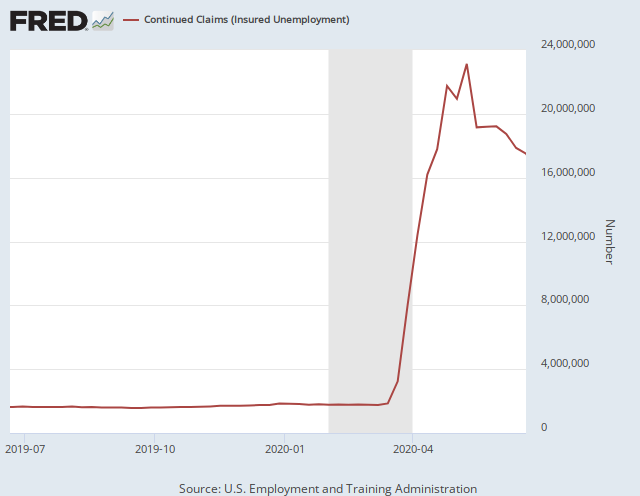There is no sign that enhanced unemployment benefits are discouraging work so lawmakers should resist calls to let the program expire prematurely at the end of July.
The CARES Act super-sized unemployment benefits by including a $600 a week federal supplement to the normal state benefits, which on average replace around half of a worker’s wages. That means that a substantial portion of the unemployed now receive more in benefits than they earned while working.
A recent analysis by University of Chicago economists Peter Ganong, Pascal Noel, and Joseph Vavra estimated that 68 percent of unemployed workers eligible for jobless benefits are eligible for payments that are greater than their lost earnings. The median replacement income is 134 percent of wages. One out of five eligible unemployed workers will receive benefits at least twice as large as their lost earnings.
These figures actually exceed the estimates of some Republicans and conservative policy wonks who warned when the enhanced employment benefits were first put in place that they risked discouraging work. And now a fight is brewing on Capitol Hill about whether to extend the enhancement beyond its original end-of-July deadline, with many Republicans casting a skeptical eye on the additional spending.
The latest economic data, however, suggests that Republican fears of discouraging work are premature. In the first place, continuing claims have come down substantially from their peak on May 9, falling by around 16 percent. So despite the odds that workers were receiving more in benefits, many workers are returning to work.

In fact, continuing claims for unemployment benefits have dropped nearly twice as fast as employers have created job openings. This is important. The low level of openings, around 2 million below last year’s level, indicates that employers are not desperate for workers and work is still hard to find for many of the unemployed.

Openings in manufacturing are still scarce, indicating that factories are not having problems finding workers yet.

Hires were up sharply in May, another indication that businesses are successfully luring workers back into the jobs that we have. In fact, this was the largest monthly count for hires ever recorded. It’s pretty hard to argue with a straight face that workers are discouraged from taking jobs when employers hired more workers in one month than ever before.

In summary:
- the number of Americans collecting unemployment benefits has been falling even with enhanced benefits;
- business have hired a record number of workers; and
- unfilled jobs remain very low.
There is little doubt that the CARES Act unemployment enhancement could have the effect of discouraging work one day. But there’s no sign we’ve reached that day. Right now the main effects of the boost to benefits are reducing household hardship, providing income support, keeping Americans attached to the workforce rather than dropping out, and boosting consumer confidence and spending.
There’s nothing to be gained by cutting benefits when so many Americans are still unable to find work.

COMMENTS
Please let us know if you're having issues with commenting.